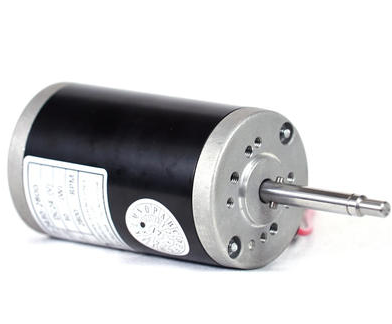Views: 0 Author: Site Editor Publish Time: 2021-09-03 Origin: Site









Understanding the voltage requirements and generation capabilities of DC motors is crucial for optimal performance. If you're wondering how many volts can a DC motor generate or how much voltage in a DC motor is typical, our comprehensive guide offers insights into these critical aspects.
A DC motor operates within a specific voltage range, and the normal DC motor voltage typically depends on the motor's design and application. For instance, a 12V DC motor is common and can generate sufficient power for many applications. If you're asking how much electricity can a 12V DC motor generate, it largely depends on the motor's efficiency and load conditions.
We also address questions like how many volts does a DC motor need and how much voltage does a DC motor need to operate effectively. Whether you're dealing with a 1 volt motor or a 100 volt DC motor, understanding these parameters helps in selecting the right motor for your project.
For accurate and reliable information on the voltage of DC motors and their operational needs, explore our detailed resources and ensure your motor applications meet all performance standards.
This passage is going to talk about the followings of Dc motor:
(1) The working voltage of Dc motor
(2) The working current of a Dc motor
(3) Factors affecting the output of Dc motors
If the battery is the power source of the electric motor, a lower working voltage is required because fewer battery cells are required to obtain the specified voltage. However, electronic devices that drive electric motors are generally more efficient at higher voltages. A typical Dc motor can operate at voltages as low as 1.5 volts or as high as 100 volts or higher. Robot experts usually use motors that run at 6 volts, 12 volts, or 24 volts because most robots are powered by batteries, and batteries usually have these values.

An ideal electric motor will generate a lot of power while requiring minimal current. However, the rated current (used in combination with the rated voltage) usually indicates the power output capability of the motor. Power input (current multiplied by voltage) can be a good indicator of mechanical power output. Similarly, a given motor will consume more current when delivering greater output torque. Therefore, when the motor stalls, the rated current is usually given. At this point, it is drawing maximum current and applying maximum torque. Low voltage (for example, 12 volts or less) Dc motors may draw from 100 mA to several amps when they stall, depending on their design.
The next three ratings describe the output characteristics of the motor:
The first is speed.
Usually, it is specified as the motor's rotational speed per minute (RPM) when unloading or free running at the specified operating voltage. The operating speed of a typical Dc motor is one to twenty thousand revolutions. The motor speed can be easily measured by installing a disk with a hole or a LEGO pulley on the disk and using a slotted optical switch and an oscilloscope to measure the time between the opening of the switch.
The second is torque.
The torque of a motor is the rotational force generated on its output shaft. When the motor stalls, it produces the maximum torque. Therefore, the rated torque is usually used when the motor stalls, which is called the stall torque. Motor torque is measured in ounce inches (in the imperial system) or Newton meters (in the metric system). The torque of small motors is usually given in millinewton meters (mN-m) or 1/1000 Nm. The 1 ounce-inch rating means that the motor applies a tangential force of 1 ounce at a radius of 1 inch from the center of its shaft. The rated torque of large motors may range from less than one ounce-inch to tens of ounce-inches.
The third is power.
The power of a motor is the product of its speed and torque. The output power is maximum at approximately halfway between the no-load speed (maximum speed, no torque) and the stall state (maximum torque, no speed). The output power in watts is approximately (torque) x (rpm) / 9.57.
A typical Dc motor can operate at voltages as low as 1.5 volts or as high as 100 volts or higher. Robot experts usually use motors that run at 6 volts, 12 volts, or 24 volts because most robots are powered by batteries, and batteries usually have these values. If you are interested in Dc motors, please contact us. We shall serve you wholeheartedly.
